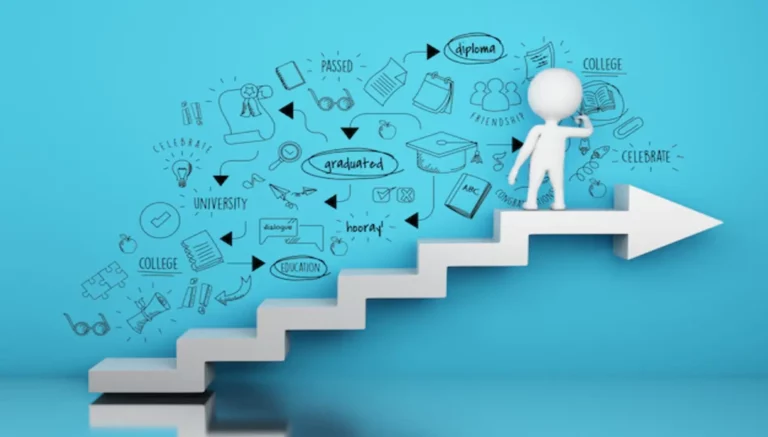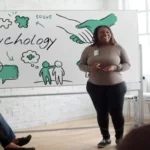
Today, attending lectures and seminars is an integral part of personal development and professional growth. However, simply being present at a lecture is not enough. To truly boost your learning experience, it is essential to be engaged during these sessions.
Let’s discuss some of the steps it takes.
Come Prepared
Preparation is the foundation of success in any learning activity. Before attending a lecture, take the time to familiarize yourself with the topic and the speaker. Read any assigned materials, review relevant concepts, and jot down questions or ideas you wish to explore further. By doing so, you will have a solid background knowledge that allows you to actively participate and contribute during the lecture.
Active Listening
Active listening is a crucial skill that can significantly enhance your learning experience. It involves giving your undivided attention to the speaker, maintaining eye contact, and avoiding distractions. Actively listen for key concepts, main ideas, and supporting examples. Take notes to reinforce your understanding and to refer back to later. This not only helps you retain information but also demonstrates your genuine interest and engagement.
Engage in Discussion
Lectures often include audience participation, such as Q&A sessions or group discussions. Embrace these opportunities and actively contribute to the dialogue. Share your perspectives, ask thoughtful questions, and engage in meaningful exchanges with both the speaker and your fellow participants. This not only enriches your understanding but also allows you to gain different perspectives and insights from others.
Take Advantage of Technology
Technology is a powerful ally in enhancing lecture engagement. Use tools like smartphones, tablets, or laptops to access supplementary resources, take live notes, or participate in interactive polls or quizzes, if available. However, ensure that your use of technology remains focused on the lecture content and doesn’t become a distraction to yourself or others.
Reflect and Review
After the lecture, take some time to reflect on what you have learned. Review your notes, summarize key points, and connect them to your existing knowledge. Consider how the lecture material relates to your personal or professional goals. Reviewing helps reinforce your understanding and ensures long-term retention of the information.
Seek Clarification
If you encounter any uncertainties or gaps in your understanding during the lecture, don’t hesitate to seek clarification. Raise your hand or approach the speaker during breaks to ask questions or request further explanations. Remember, seeking clarification demonstrates your commitment to learning and ensures that you have a thorough grasp of the material.
Conclusion:
Becoming highly effective at a lecture requires more than just passive attendance. By coming prepared, actively listening, engaging in discussion, utilizing technology appropriately, reflecting, and seeking clarification when needed, you can significantly enhance your learning experience. Remember, lectures provide a unique opportunity to acquire knowledge, broaden your horizons, and connect with experts in various fields.
10 Habits of Smart Students
Each class presents a unique set of challenges and opportunities. To thrive academically and personally, students need to develop good habits. We will examine ten habits that can students succeed in their studies and beyond. By following these habits in your daily routine, you can enhance your learning experience, achieve your goals, and set the foundation for a successful future.
Time Management
Successful students understand the importance of managing their time wisely. Create a schedule or use a planner to arrange tasks, set realistic goals, and allocate time for studying, attending classes, and participating in extracurricular activities. This habit will help you stay organized, reduce stress, and make the most of your experience.
Active Learning
Instead of passively absorbing information, smart students actively engage in the learning process. Actively participate in class discussions, ask questions, and seek clarification when needed. Take thorough notes and review them regularly. Actively learning helps you understand and retain information more effectively.
Effective Study Techniques
Developing effective study techniques is crucial for academic success. Try different methods such as summarizing information, creating flashcards, or teaching the material to someone else. Find the techniques that work best for you and integrate them into your study routine.
Consistent Work Ethic
Consistency is key to achieving long-term success. Cultivate a strong work ethic by dedicating regular and consistent effort to your studies. Break down large tasks into smaller, manageable steps, and work on them consistently over time. This approach will help you avoid procrastination and ensure that you stay on top of your academic responsibilities.
Active Participation
Smart students actively engage in campus life by participating in clubs, organizations, and events. Get involved in extracurricular activities related to your interests and goals. This habit not only allows you to explore new passions but also helps you build a strong network, develop leadership skills, and enhance your overall experience.
Effective Communication
Communication skills are vital for success in college and beyond. Practice effective verbal and written communication by actively participating in class discussions, seeking help from teachers or classmates when needed, and presenting your ideas clearly and confidently. Strong communication skills will benefit you in your academic pursuits and future career.
Healthy Work-Life Balance
Maintaining a healthy work-life balance is crucial for your overall well-being and academic performance. Make time for relaxation, hobbies, and social activities. Taking breaks and engaging in activities outside of your studies will help you recharge, reduce stress, and maintain a positive mindset.
Continuous Self-Improvement
Smart students never stop learning and improving themselves. Continuously seek opportunities for personal and professional growth, such as attending workshops, seminars, or online courses. Embrace challenges, step out of your comfort zone, and cultivate a growth mindset that embraces learning from both successes and failures.
Effective Goal Setting
Setting clear and achievable goals is a habit of successful students. Define your short-term and long-term goals and break them down into actionable steps. Regularly reassess and adjust your goals as needed. Having well-defined goals provides direction and motivation, guiding you toward academic success and personal fulfillment.
Self-Care
Taking care of your physical and mental well-being is essential for success. Prioritize self-care by getting enough sleep, eating nutritious meals, and engaging in regular exercise. Make time for activities that help you relax and rejuvenate, such as meditation, hobbies, or spending time with loved ones.
Stop Procrastinating and be Proactive in 6 steps
Procrastination can be a significant obstacle to productivity and personal growth. Overcoming this habit and being proactive is crucial for achieving success and reaching your goals. In this section, we will outline six actionable steps that can help you break free from procrastination and cultivate a proactive mindset. By implementing these steps, you can increase your productivity, reduce stress, and unlock your full potential.
Step 1: Understand the Root Causes
Take a moment to reflect on the underlying reasons for your procrastination. Is it due to fear of failure, lack of motivation, or feeling overwhelmed? By understanding the root causes, you can address them directly and develop effective strategies to overcome them. Awareness is the first step toward change.
Step 2: Set Clear Goals and Schedule
Clearly define your goals and break them down into smaller, manageable tasks. When you have a clear roadmap, it becomes easier to schedule your tasks and allocate time and resources accordingly. Identify the most important and urgent tasks and tackle them first. This approach helps you stay focused and prevents procrastination from creeping in.
Step 3: Break Tasks into Smaller Steps
Large tasks can often feel overwhelming, leading to procrastination. Break them down into smaller, more manageable steps. This not only makes the tasks seem less daunting but also provides a sense of progress and achievement as you complete each step. Celebrating these small victories can boost your motivation and drive to keep moving forward.
Step 4: Create a Structured Schedule
Develop a structured schedule that includes dedicated time slots for different activities and tasks. Set aside specific blocks of time for focused work, breaks, and relaxation. Stick to your schedule as much as possible, treating it as a commitment to yourself. A well-planned schedule provides structure, minimizes distractions, and helps you make the most of your time.
Step 5: Practice Effective Time Management Techniques
Implement effective time management techniques to enhance productivity and minimize procrastination. Some popular techniques include the Pomodoro Technique (working in focused 25-minute intervals followed by short breaks), time blocking (allocating specific time slots for specific tasks), and setting deadlines for yourself. Experiment with different techniques and find what works best for you.
Step 6: Cultivate a Positive Mindset and Accountability
Develop a positive mindset that embraces a proactive approach. Focus on the benefits and rewards of taking action and completing tasks promptly. Surround yourself with positive influences and individuals who inspire and motivate you. Additionally, hold yourself accountable for your actions by sharing your goals and progress with a trusted friend, family member, or mentor. External accountability can provide the extra push you need to stay proactive.
7 Things you should do in the Morning to be successful
Starting your day on the right foot can set the tone for success and productivity. By incorporating specific morning habits into your routine, you can boost your energy levels, and focus for the day ahead. We will examine seven essential habits that can help you make the best out of your mornings and pave the way for a successful day.
Wake Up Early
Rising early allows you to seize the day and make the most of your mornings. Set your alarm clock for a consistent time each morning, giving yourself ample time to complete your morning routine without rushing. Waking up early provides a sense of calm, allows for personal reflection, and gives you a head start on your goals.
Hydrate and Nourish Your Body
Start your day by hydrating your body with a glass of water. This simple act rehydrates your system after sleep and kickstarts your metabolism. Follow this up with a nutritious breakfast to fuel your body and provide sustained energy throughout the day. A balanced meal rich in protein, whole grains, and fruits or vegetables sets the foundation for optimal mental and physical performance.
Exercise or Move Your Body
Physical activity in the morning not only boosts your energy levels but also improves your overall well-being. Engage in a workout, go for a walk or run, or practice yoga or stretching exercises. The endorphins released during exercise enhance your mood, increase mental alertness, and promote a sense of accomplishment.
Set Intentions and arrange Tasks
Take a few moments to set clear intentions and goals for the day. Write down the most important tasks or priorities you need to accomplish. By clarifying your focus, you can avoid getting overwhelmed and ensure that your actions align with your long-term objectives. Reviewing your goals each morning helps maintain momentum and progress toward success.
Learn and Grow
Commit to continuous learning and personal growth by dedicating time each morning to expand your knowledge. Read a book, listen to a podcast, or engage in educational content related to your field of interest or personal development. This habit broadens your perspective, sparks creativity, and equips you with new insights and ideas.
Practice Gratitude
Cultivating an attitude of gratitude can significantly impact your overall well-being and success. Take a moment each morning to reflect on what you are grateful for. This practice shifts your focus to the positive aspects of your life, fostering a sense of abundance and contentment. Starting the day with gratitude sets an optimistic mindset, enhancing your resilience and productivity.
How to Discover and Develop Your Talent
Within each of us lies a wealth of untapped potential and hidden talents waiting to be discovered. Uncovering these hidden talents bring a sense of fulfillment and personal growth, and even pens doors to new opportunities. We will discuss effective strategies to analyze and discover your hidden talents.
Self-Reflection
Begin by engaging in deep self-reflection. Take time to ponder your interests, passions, and curiosities. Ask yourself questions like, “What activities make me happy?”, “What do I enjoy doing even under stress?” or “What am I naturally drawn to?” Pay attention to moments when you feel in flow or lose track of time, as these may indicate areas of hidden talent.
Seek Feedback
Reach out to friends, family, and trusted mentors to gain external perspectives. Ask them about the qualities or skills they admire in you, or seek feedback on areas where they believe you excel. Sometimes others can recognize talents within us that we may overlook or underestimate. Their input can help confirm your strengths and shed light on talents you may not have fully recognized.
Experiment and Explore
Don’t be afraid to step out of your comfort zone and explore new activities and experiences. Trying different hobbies, attending workshops, or joining groups centered around various interests can provide exposure to diverse experiences. Engaging in these activities allows you to test your skills, and discover new passions.
Embrace Challenges
Embracing challenges is essential for personal growth and discovering hidden talents. Step outside your daily routines and take on tasks or projects that push your boundaries. Challenges provide opportunities to develop new skills. Embrace the discomfort that comes with growth, as it often leads to uncovering hidden talents.
Reflect on Childhood Interests
Recall the activities or interests you had as a child. Childhood experiences often hold clues to our hidden talents. Reflect on the things that fascinated you, the activities that brought you joy, and the areas where you excelled effortlessly. Revisiting these childhood interests can reignite forgotten talents.
Embrace Continuous Learning
Cultivate a growth mindset and embrace learning. Seek opportunities to expand your knowledge, whether through formal education, online courses, or self-study. Engaging in continuous learning widens your perspective, exposes you to new ideas, and helps you discover hidden talents, you may not have been aware of.
How to Develop and Boost Your Self-esteem as a Student
Self-esteem plays a crucial role in a student’s overall well-being, academic performance, and personal development. Developing and boosting self-esteem is an ongoing process that requires self-reflection, self-compassion, and intentional actions. Listed below are practical strategies to help students cultivate healthy self-esteem.
Practice Self-Compassion
Start by being kind and compassionate towards yourself. Acknowledge that everyone makes mistakes and experiences setbacks. Treat yourself with the same level of understanding and support you would offer to a friend facing similar challenges. Embrace self-compassion as a foundation for building self-esteem and remember that your worth is not defined by external achievements alone.
Set Realistic Goals
Set realistic and achievable goals that align with your abilities and interests. Break down larger goals into smaller, manageable steps. Celebrate each milestone along the way. Achieving smaller goals boosts your self-confidence and motivates you to pursue more significant achievements.
Focus on Strengths and Accomplishments
Identify your strengths, talents, and past accomplishments. Reflect on your achievements, both big and small, and remind yourself of the skills and qualities that helped you succeed. Celebrate your accomplishments, no matter how minor they may seem, as they contribute to your overall growth and self-esteem.
Surround yourself with Positive Influences
Surround yourself with positive and supportive individuals who uplift and encourage you. Seek out friends, mentors, or role models who believe in your abilities and inspire you to reach your potential. Limit exposure to negative influences or individuals who undermine your self-confidence. Positive relationships foster a nurturing environment for personal growth and self-esteem.
Practice Self-Care
Practice self-care to nurture your physical, emotional, and mental well-being. Engage in activities that bring you joy, relaxation, and rejuvenation. Make time for hobbies, exercise, quality sleep, and healthy eating. Taking care of yourself demonstrates self-respect and sends a message that you value your overall well-being, contributing to a positive self-image.
Challenge Negative Self-talk
Pay attention to your inner dialogue and challenge negative self-talk. Replace self-criticism with positive affirmations and empowering statements. Remind yourself of your capabilities, resilience, and past successes. Surround yourself with positive affirmations.
Seek Support
Reach out for support when needed. Talk to trusted friends, family members, or mentors about your challenges and insecurities. Sometimes, sharing your feelings and seeking guidance can provide valuable perspectives, encouragement, and practical solutions. Additionally, consider seeking professional help from counselors or therapists who specialize in building self-esteem.
Tips to be Calm and Confident during a Presentation
Prepare Thoroughly
Thorough preparation is the foundation of a confident presentation. Research your topic extensively, arrange your content logically, and create a clear outline. Practice your delivery multiple times to be familiar with the material. The more prepared you are, the more confident you will feel about your ability to deliver a compelling presentation.
Control Your Breathing
Deep breathing exercises are an excellent technique to calm your nerves and center yourself before and during a presentation. Take slow, deep breaths from your diaphragm, exhaling fully. This technique triggers your body’s relaxation response, reducing stress and anxiety. Practice controlled breathing to maintain a steady rhythm and create a sense of calmness throughout your presentation.
Use Body Language
Body language plays a significant role in projecting confidence. Stand tall, with your shoulders back and head held high. Maintain good eye contact with your audience. Use open gestures and avoid fidgeting or excessive movement. Positive body language not only enhances your confidence but also helps captivate your audience.
Engage with Enthusiasm
Demonstrate enthusiasm for your topic and project it to your audience. Engaging with passion and energy not only captures attention but also boosts your confidence. Use a confident and clear voice, varying your tone and pace to keep your audience engaged. Emphasize key points with conviction, and let your enthusiasm shine through your words and gestures.
Embrace Mistakes as Learning Opportunities
Remember that mistakes are a natural part of any presentation. If you stumble or forget a point, don’t panic or dwell on it. Instead, view it as an opportunity to demonstrate resilience and adaptability. Stay composed, take a breath, and continue with confidence. The ability to handle setbacks gracefully reinforces your overall confidence and credibility.
Importance of Personal Development as a Student
Self-Awareness and Goal Setting
Personal development cultivates self-awareness, which enables students to understand their strengths, weaknesses, interests, and values. By gaining clarity about themselves, students can set meaningful goals that align with their aspirations and interest. This self-reflection helps students make better choices about their academic paths, career pursuits, and personal lives.
Motivation and Confidence
Engaging in personal development activities boosts motivation and self-confidence. As students develop new skills, overcome challenges, and witness their personal growth, they gain a sense of accomplishment. This confidence spills over into other areas of their lives, such as academics, relationships, and extracurricular pursuits.
Academic Excellence
Personal development positively impacts academic performance. Students who actively engage in self-improvement activities, such as time management, effective study techniques, and goal setting, are better equipped to handle academic demands. They develop discipline, focus, and a growth mindset, which contribute to improved learning outcomes, increased productivity, and a higher level of academic achievement.
Emotional Intelligence and Interpersonal Skills
Personal development fosters emotional intelligence and interpersonal skills, which are important for success in personal and professional relationships. Students learn to understand and manage their emotions, sympathize with others, and communicate effectively. These skills promote healthy collaboration and conflict resolution.
Adaptability and Resilience
Personal development equips students with the skills to adapt and thrive in different environments. Through self-reflection, learning from failures, and developing problem-solving abilities, students become more resilient. They learn to embrace change, adapt their strategies, and bounce back from setbacks. This resilience is important for going through challenges, transitions, and uncertainties that life may present.
Lifelong Learning
Personal development instills a love for lifelong learning in students. It encourages a growth mindset and a curiosity to explore new ideas, perspectives, and disciplines. Students who embrace personal development continually seek opportunities for self-improvement, whether through formal education, self-study, or experiential learning. This thirst for knowledge equips them with the skills needed to adapt to a rapidly evolving world.
5 key areas for personal development
Personal development encompasses various areas of growth and self-improvement. Here are five key areas to focus on:
Emotional Intelligence
Emotional intelligence refers to the ability to recognize, understand, and manage one’s emotions effectively. Developing emotional intelligence involves self-awareness, self-regulation, empathy, and interpersonal skills. Individuals can handle relationships, and conflicts, and communicate more effectively.
Communication and Interpersonal Skills
Effective communication and strong interpersonal skills are essential for personal and professional success. Developing these skills involves active listening, assertiveness, empathy, and the ability to convey ideas and information. Enhancing communication and interpersonal skills enables individuals to build stronger relationships, resolve conflicts, and collaborate effectively with others.
Goal Setting and Time Management
Setting goals and managing time efficiently are fundamental aspects of personal development. Goal setting helps individuals clarify their aspirations and create a roadmap for achieving them. Time management involves prioritizing tasks, avoiding procrastination, and using time effectively. Developing these skills allows individuals to be more organized, focused, and productive in both personal and professional endeavors.
Self-Confidence and Self-Esteem
Building self-confidence and self-esteem is vital for personal development. It involves recognizing one’s strengths, embracing self-acceptance, and developing a positive self-image. Building self-confidence and self-esteem enables individuals to overcome self-doubt, take on challenges, and believe in their abilities. It lays the foundation for personal growth, resilience, and success in various aspects of life.
Learning and Personal Growth
Personal development involves a commitment to lifelong learning and continuous personal growth. It involves seeking knowledge, acquiring new skills, and expanding one’s perspectives. Engaging in learning, such as formal education, reading, attending workshops, or pursuing hobbies, fuels personal growth and enables individuals to adapt to changing circumstances.
It’s important to note that personal development is a holistic process, and these areas often intersect and support each other. By focusing on these key areas, individuals can cultivate self-awareness, enhance their relationships, achieve their goals, boost self-confidence, and experience personal fulfillment. Embracing personal development as a journey contributes to overall well-being and success in various aspects of life.
Embrace these strategies and make the most out of every lecture you attend. Your personal and professional development will undoubtedly reap the rewards.
Remember, it’s the small steps taken consistently that lead to significant progress and personal growth.



